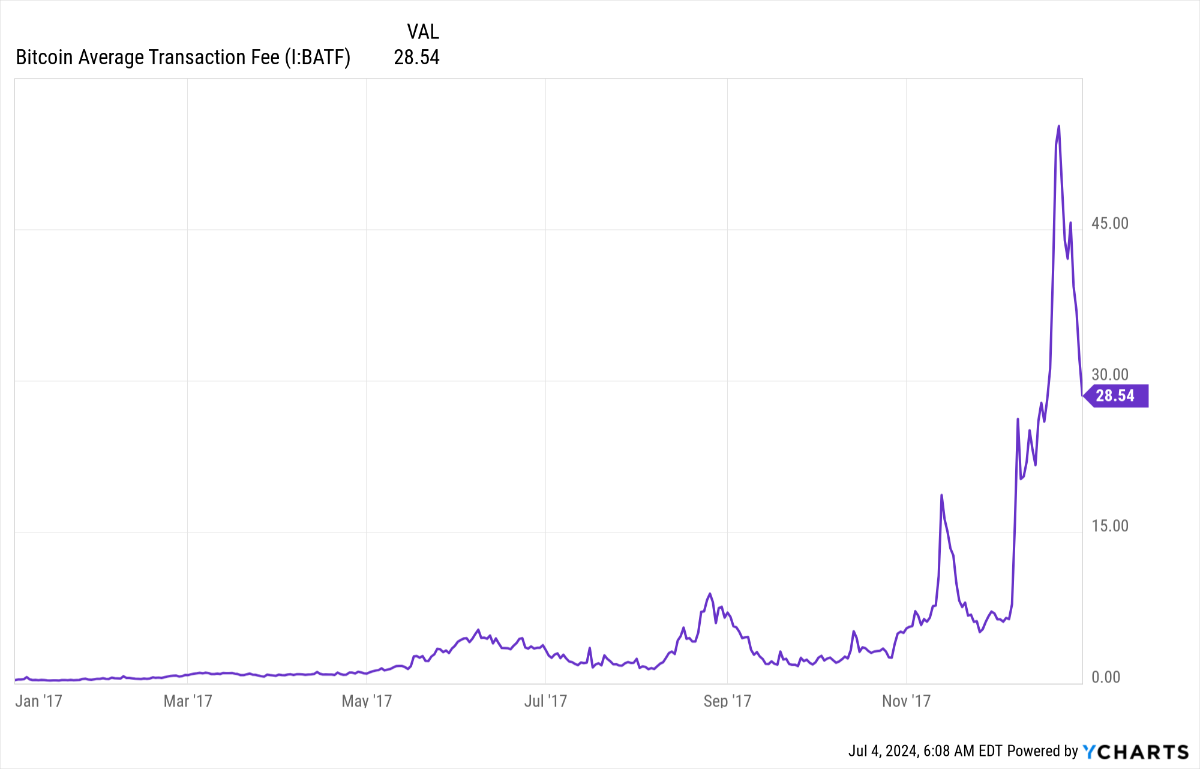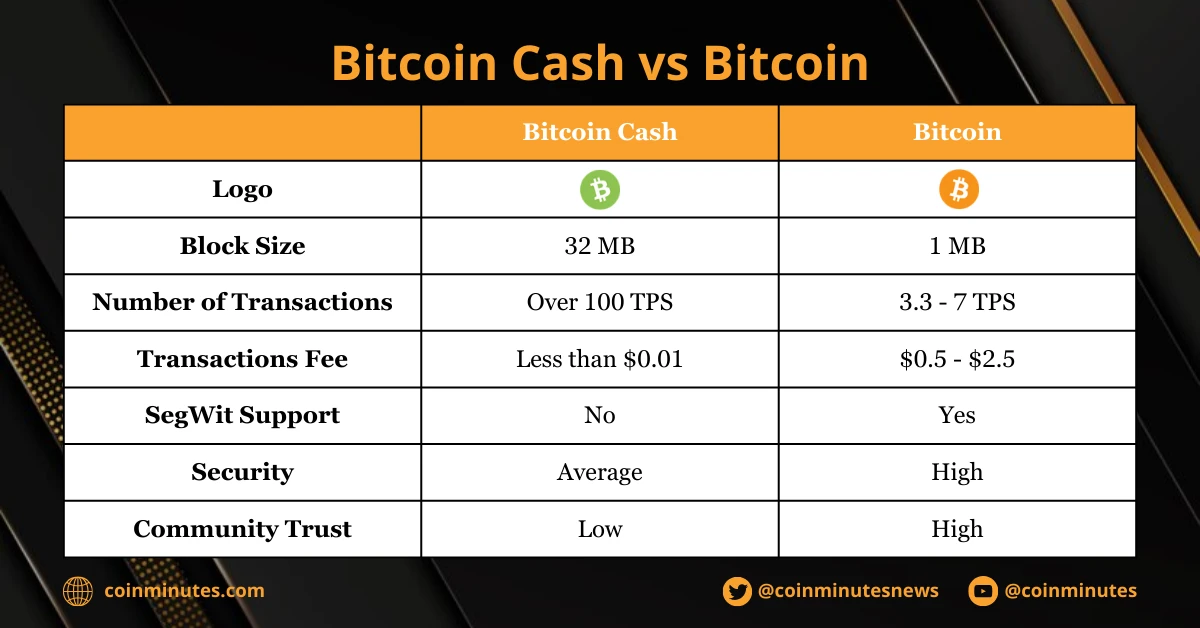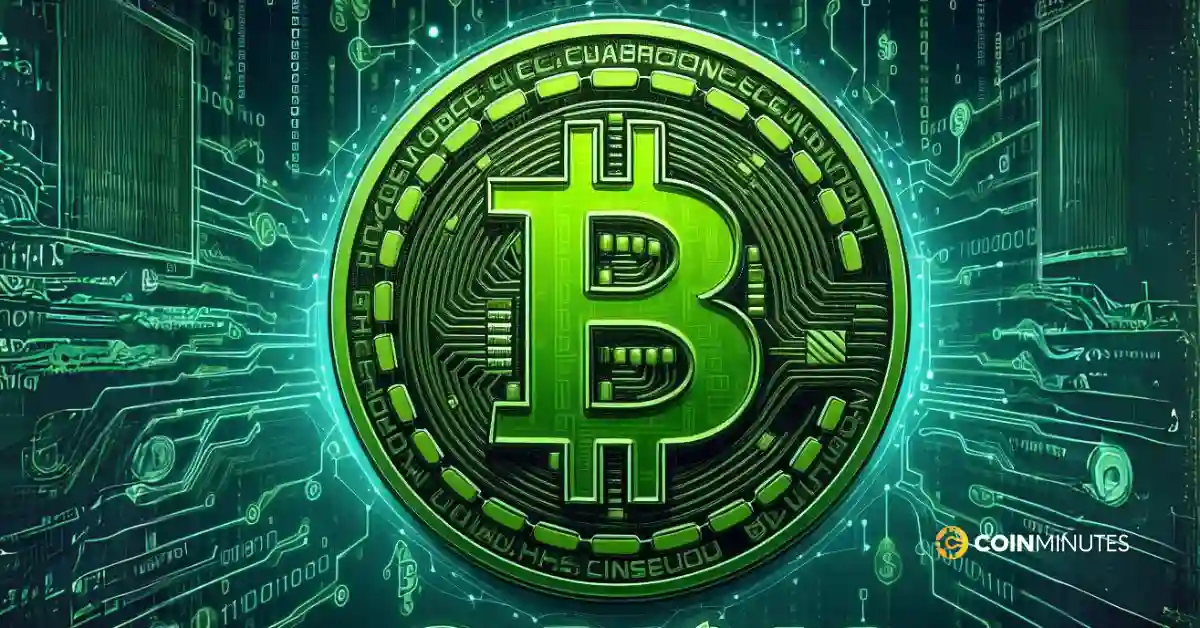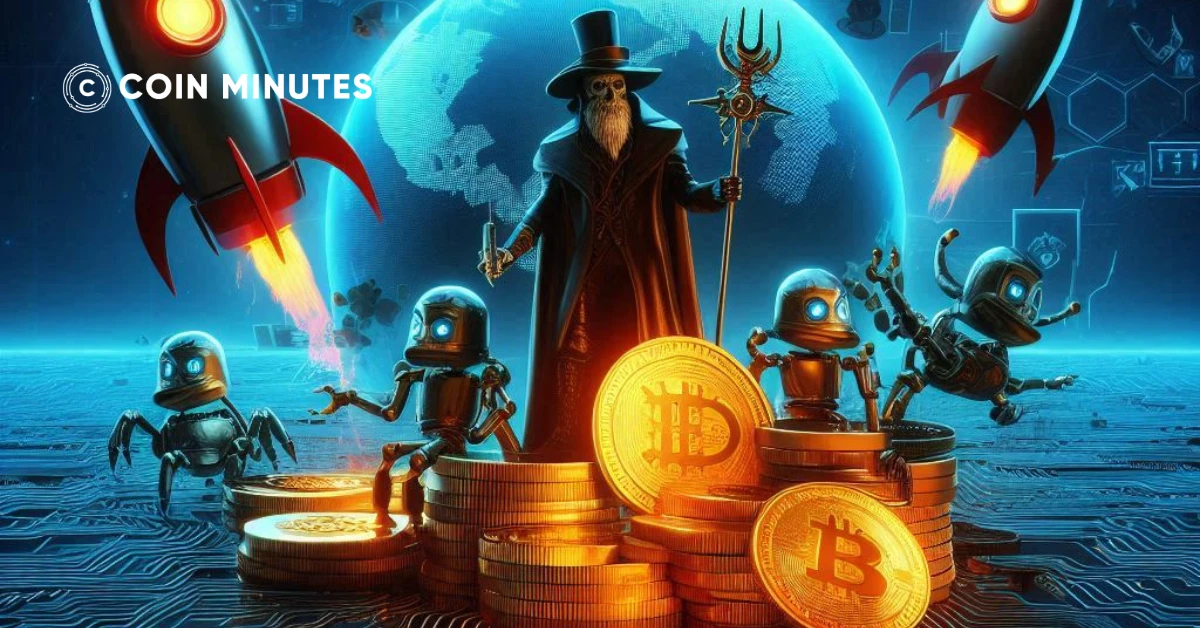What is Bitcoin Cash?
Bitcoin Cash (BCH) is a decentralized digital currency created from a split of the original Bitcoin blockchain in August 2017.
Bitcoin Cash has the same features as Bitcoin but has increased the block size to improve the ability to transact with lower costs and faster transaction times.
Key Takeaways
|
Bitcoin Cash History
In early 2017, the rapid rise of Bitcoin brought attention to its issues. The surge in BTC transactions led to longer waiting times for transaction confirmation, primarily due to Bitcoin’s block size limit being only 1MB at that time. To put it simply, it was like having a small shopping cart that needed to be shipped once it was full, before being able to continue adding more items to ship.
Bitcoin also encounters issues with increasing transaction costs. In the past, the average cost per Bitcoin transaction was less than $0.1, but by May 2017, it had risen to $3.46, reaching a peak of $55.27 per transaction in December of the same year.

The Bitcoin community has been embroiled in debates over how to improve the currency, resulting in two main ideas: those in favor of increasing the block size and those who want to keep the block small. Proponents of increasing the block size argue that this aligns with Satoshi Nakamoto‘s original vision for Bitcoin as a peer-to-peer payment system rather than an investment tool.
From the increasing block size idea, a group of activists, developers, and Bitcoin miners in China conducted a hard fork, creating Bitcoin Cash as a new cryptocurrency.
Bitcoin Cash was created on August 1, 2017, at block #478,559, which led to the split of the original Bitcoin blockchain into two. Any individual holding Bitcoin before this block obtained an equal amount of Bitcoin Cash. With approximately 16.5 million BTC in circulation at the time, around 16.5 million BCH were also in circulation.
| Bitcoin cash price
Bitcoin Cash began trading at around $400 when it first entered the market. It quickly surged to a peak of $4,355 per BCH on December 20, 2017, just a few months later. As of July 2024, Bitcoin Cash is trading at $375. |
Bitcoin Cash Development
In May 2018, the block size of Bitcoin Cash was increased from 8 MB to 32 MB.
On November 15, 2018, Bitcoin Cash underwent a hard fork, splitting into two separate blockchains due to a disagreement within the community. This resulted in the creation of Bitcoin Cash and Bitcoin SV (Satoshi’s Vision).
The hard fork occurred because some wanted Bitcoin Cash to maintain its original 32 MB block size, while others supported Craig Wright’s proposal to increase the block size to 128 MB to align with Satoshi Nakamoto’s vision for Bitcoin.
The most recent upgrade of Bitcoin Cash occurred on May 15, 2024. The upgrade included the addition of the Adaptive Blocksize Limit Algorithm (ABLA).
Bitcoin Cash had previously maintained a fixed block size of 32 MB, ensuring stability and quick transaction processing. However, this fixed size posed a barrier during periods of very high transaction volume, as it could not keep up with the transaction speed.
The addition of ABLA addressed this issue by automatically adjusting the block size based on the network’s needs. The block size will remain at a minimum of 32 MB but will be able to increase as transaction volume rises.
Differences Between Bitcoin Cash and Bitcoin
The main difference between Bitcoin Cash and Bitcoin is the increase in block size from 1 MB to 8 MB and then to 32 MB. And because of the larger block size, Bitcoin Cash can process more transactions at once with lower transaction fees than Bitcoin.
In addition, Bitcoin Cash does not support SegWit in their blockchain because it is an option that they believe is not suitable for the direction of Bitcoin.
Although designed to be a real Bitcoin, Bitcoin Cash does not receive much trust and interest from investors. This can be seen through two things: the value and hashrate of Bitcoin Cash.
The current value of Bitcoin Cash on April 7, 2024, is approximately $356 per BCH, which is only 1/163 of the value of Bitcoin (BTC).
As for hashrate, this network has a fairly low index of 9.21 Ehash/s, much lower than Bitcoin (566,288,916 TH/s). This places the network’s decision-making authority in the hands of a few major mining pools such as ViaBTC and BTC.com. Additionally, it becomes susceptible to 51% attacks.

How to Own Bitcoin Cash
You can own BCH through major exchanges such as Binance, Coinbase, or OKX with stablecoin USDT or fiat USD.
In addition, because Bitcoin Cash is a fork from Bitcoin, it can be mined in the same way you mine Bitcoin. You can mine with GPUs or use specialized devices such as ASIC (Application-specific integrated circuit).
Should You Invest in Bitcoin Cash or Bitcoin?
Your decision to buy Bitcoin or Bitcoin Cash depends on your investment goals, risk tolerance, and perception of the prospects of each cryptocurrency.
BTC, with its larger market capitalization and widespread use, is often considered a valuable investment for hedging against inflation.
Meanwhile, BCH is designed to be a financial instrument that can be applied to daily exchanges and transactions as a currency.
Therefore, deciding to invest in Bitcoin and hold it as a long-term investment is a safer option than investing in Bitcoin Cash.
Read more: Is Bitcoin a good investment?
The Bottom Line
Bitcoin Cash is the result of a debate within the Bitcoin community about its future direction. With the desire to become the true Bitcoin as intended by Satoshi Nakamoto, Bitcoin Cash has not been successful.
Although it has solved Bitcoin’s transaction problem by improving the block size. The Bitcoin Cash network has failed to achieve the most basic criteria of Bitcoin, which is decentralization, as it is too weak and dependent on large mining pools.
Bitcoin Cash is still in development, and in the future, it may overcome its current problems.






